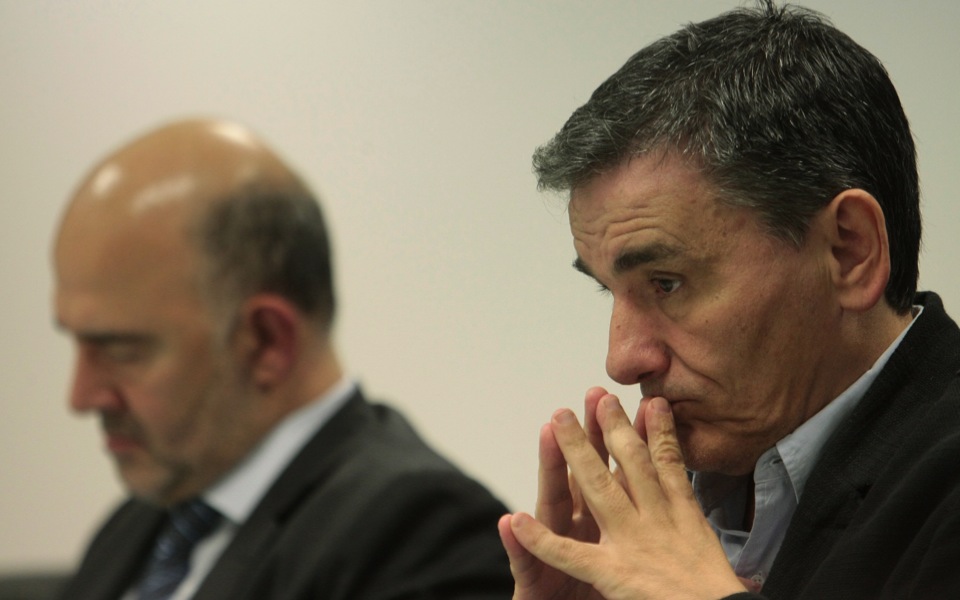Eurogroup unlikely to release next 2 billion after failure to settle pending issues

The chances of eurozone finance ministers approving the disbursement of the next bailout sub-tranche when they meet in Brussels on Monday appear slim after Friday’s Euro Working Group meeting was postponed until there is “greater clarity” about where Greece stands in its efforts to complete the prior actions demanded by its lenders.
The teleconference of technical experts who prepare the agenda for Eurogroup meetings was called off on Friday after it emerged that between 10 and 15 of 49 prior actions due to be completed before the next 2-billion-euro installment can be released have not yet been addressed.
“Monday’s Eurogroup meeting is an opportunity to take stock of progress,” EU economic affairs spokeswoman Annika Breidthardt. “Once the assessment is concluded, it will be up to the member-states to make a decision on disbursement.”
Sources suggested that it is more likely the gathering of eurozone finance ministers will conclude with a joint statement noting progress in Greece but that no disbursement would occur before the government has passed more legislation. It remains to be seen if Athens and its lenders agree on Monday on what issues to be settled.
There are several key matters on which the eurozone is expecting initiatives from the coalition. Top of this list is the criteria for the repossession and foreclosure of primary residences. Also, the government has yet to come up with a definitive fiscal alternative to imposing value-added tax on private education.
The institutions also want the government to settle on changes to the 100-installment payment plan for taxpayers who owe money to the state. The lenders want the rules to be tightened so that anyone not keeping up with monthly payments loses the right to be part of the scheme.
The government is also being asked not to set any minimum price for generic or off-patent drugs. The coalition has proposed lowering the current minimum level gradually over the next two years.





